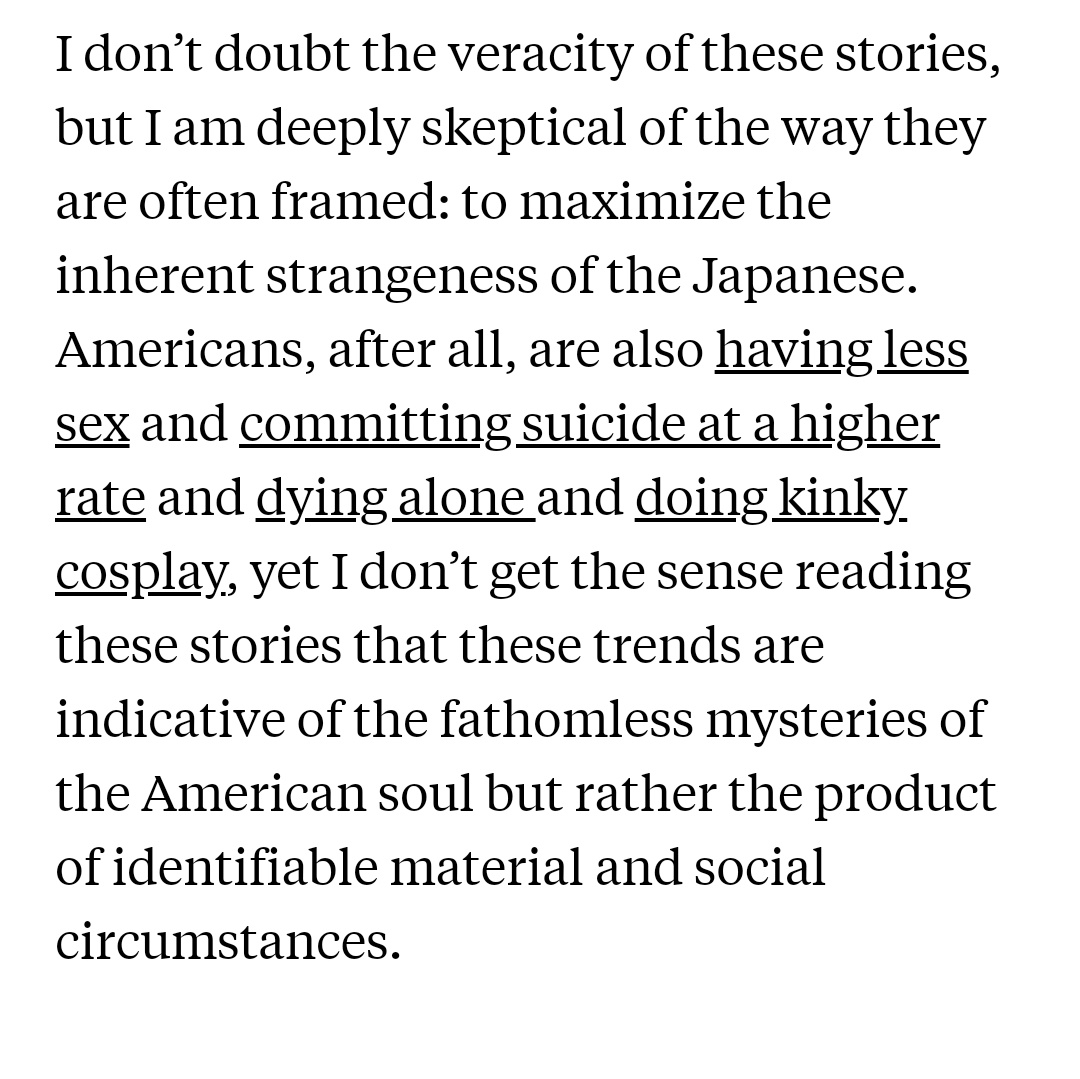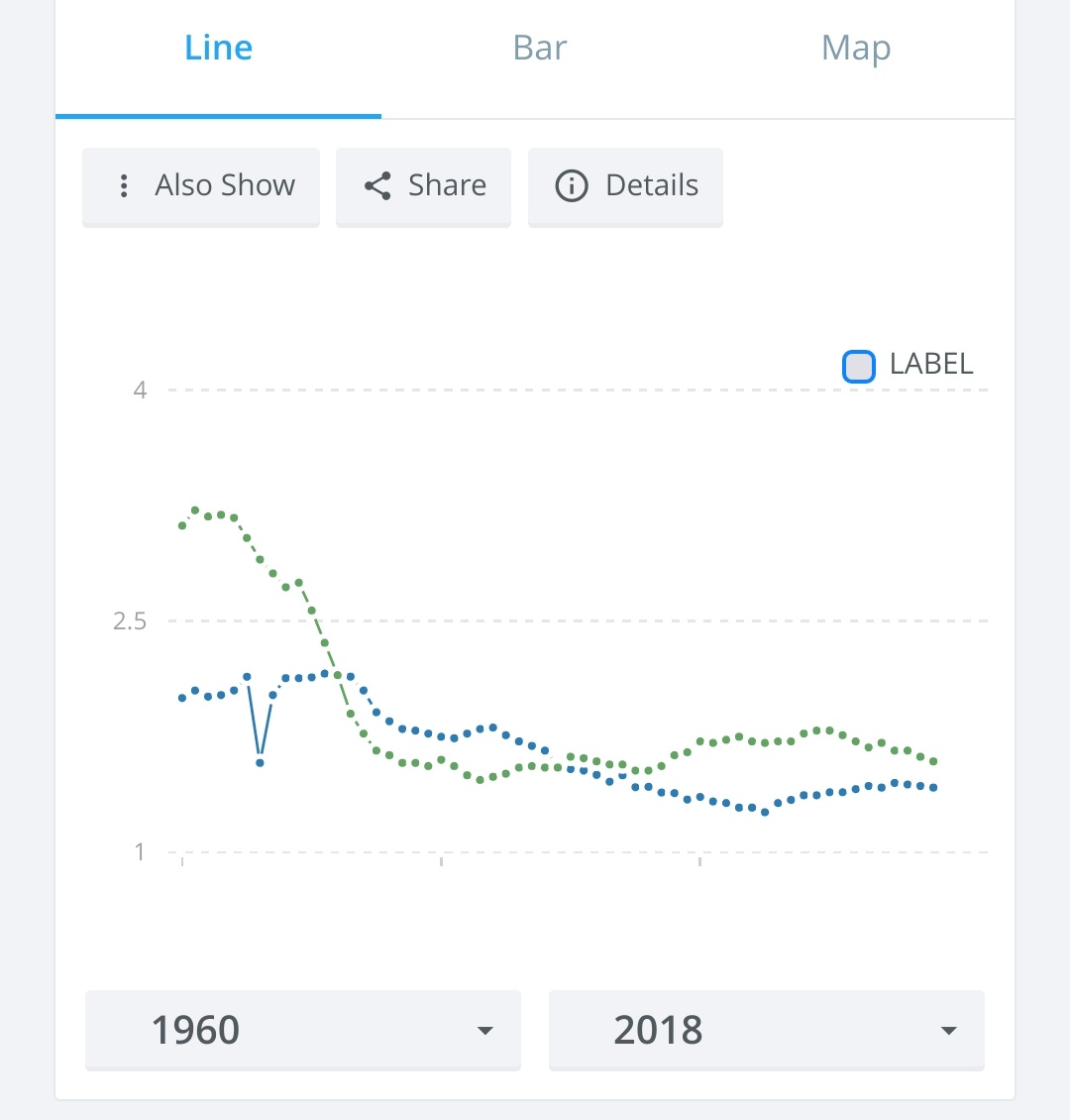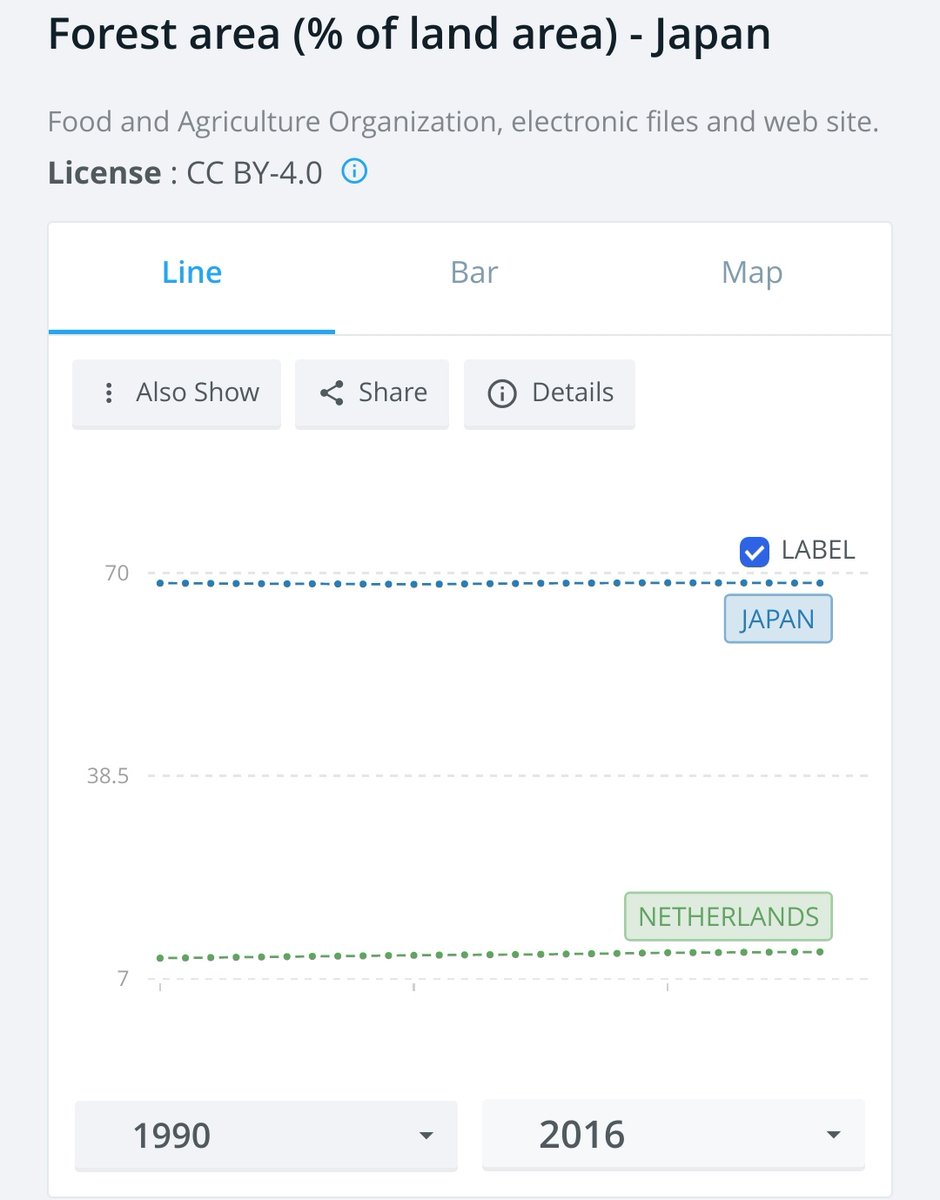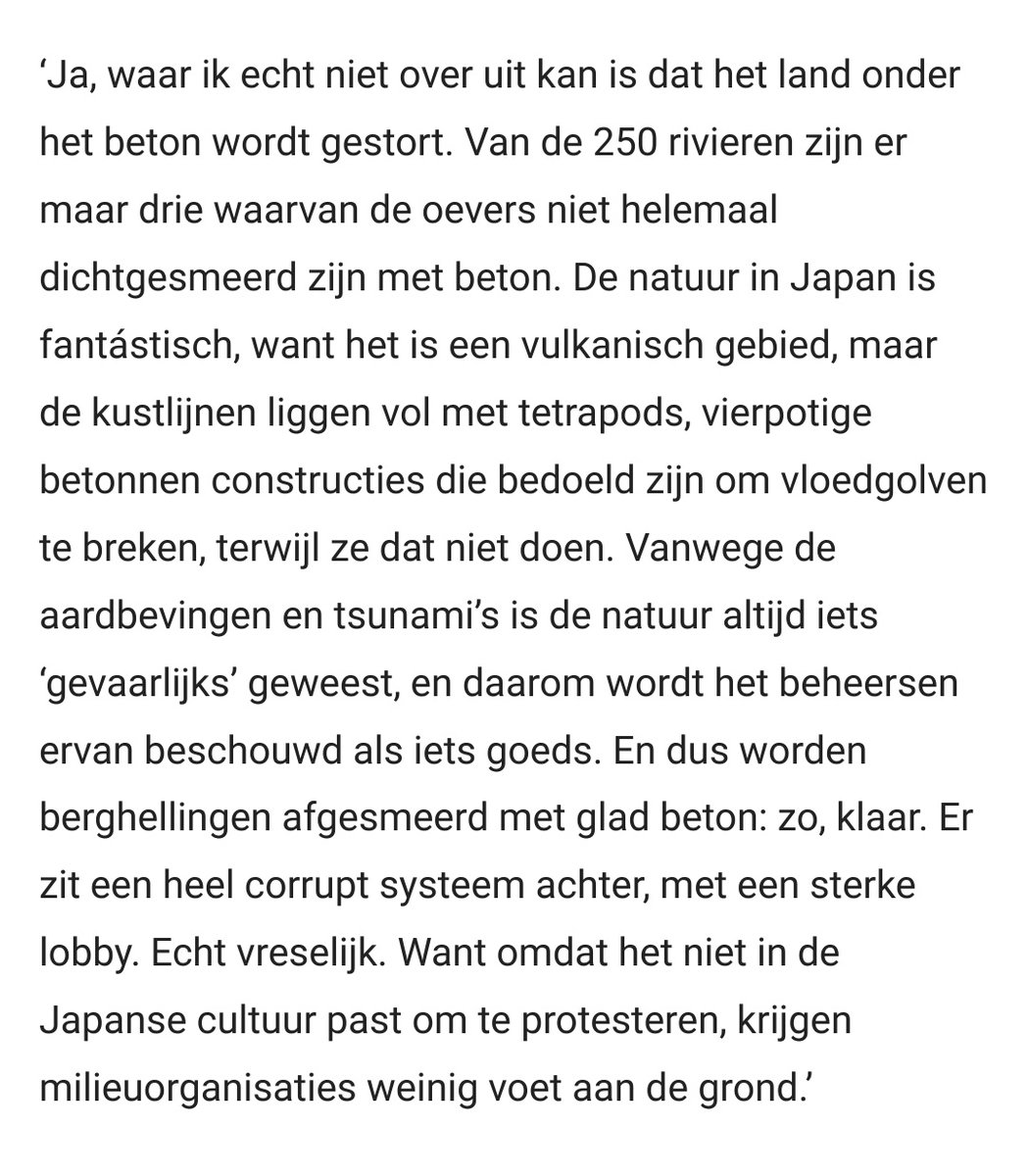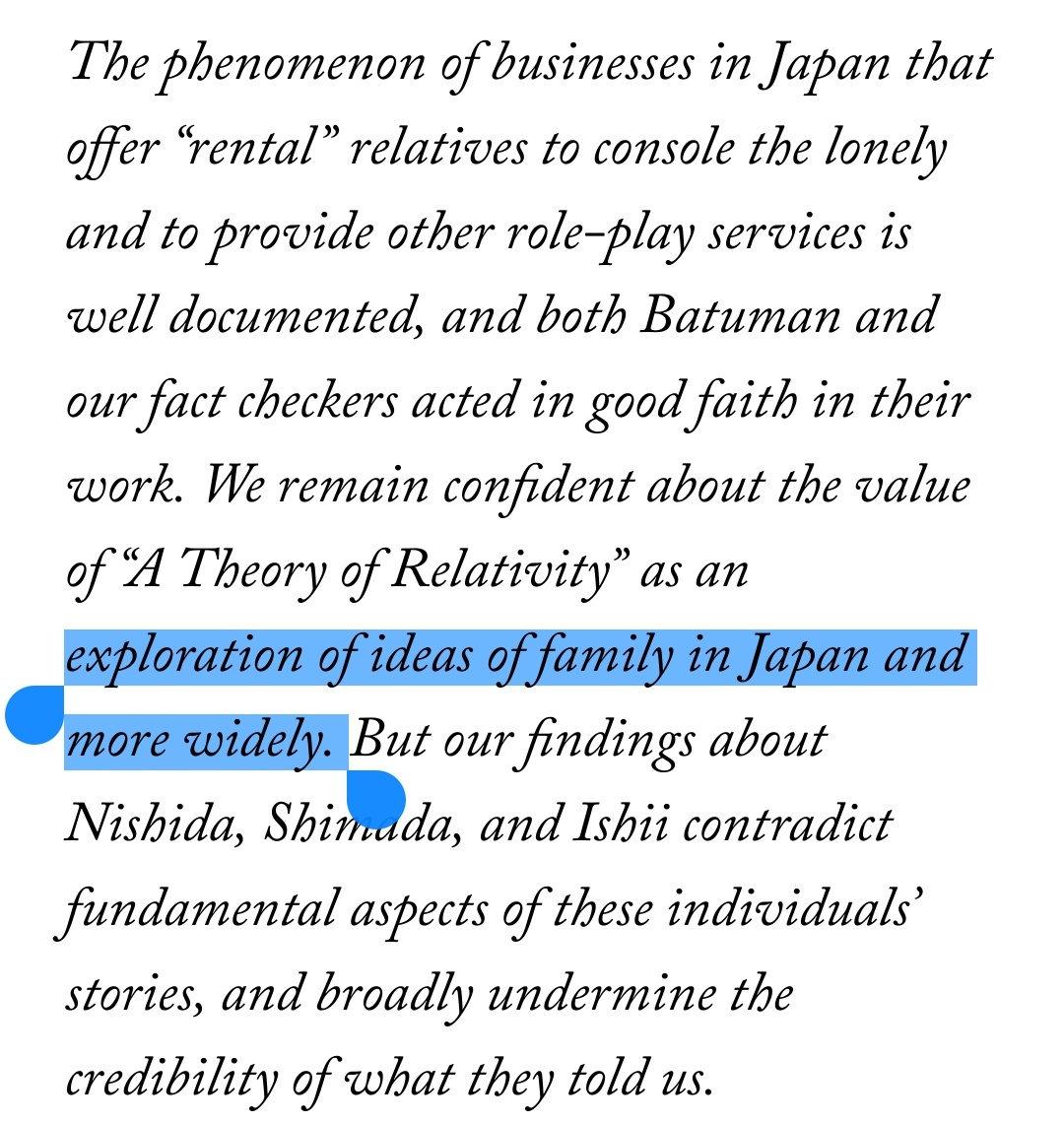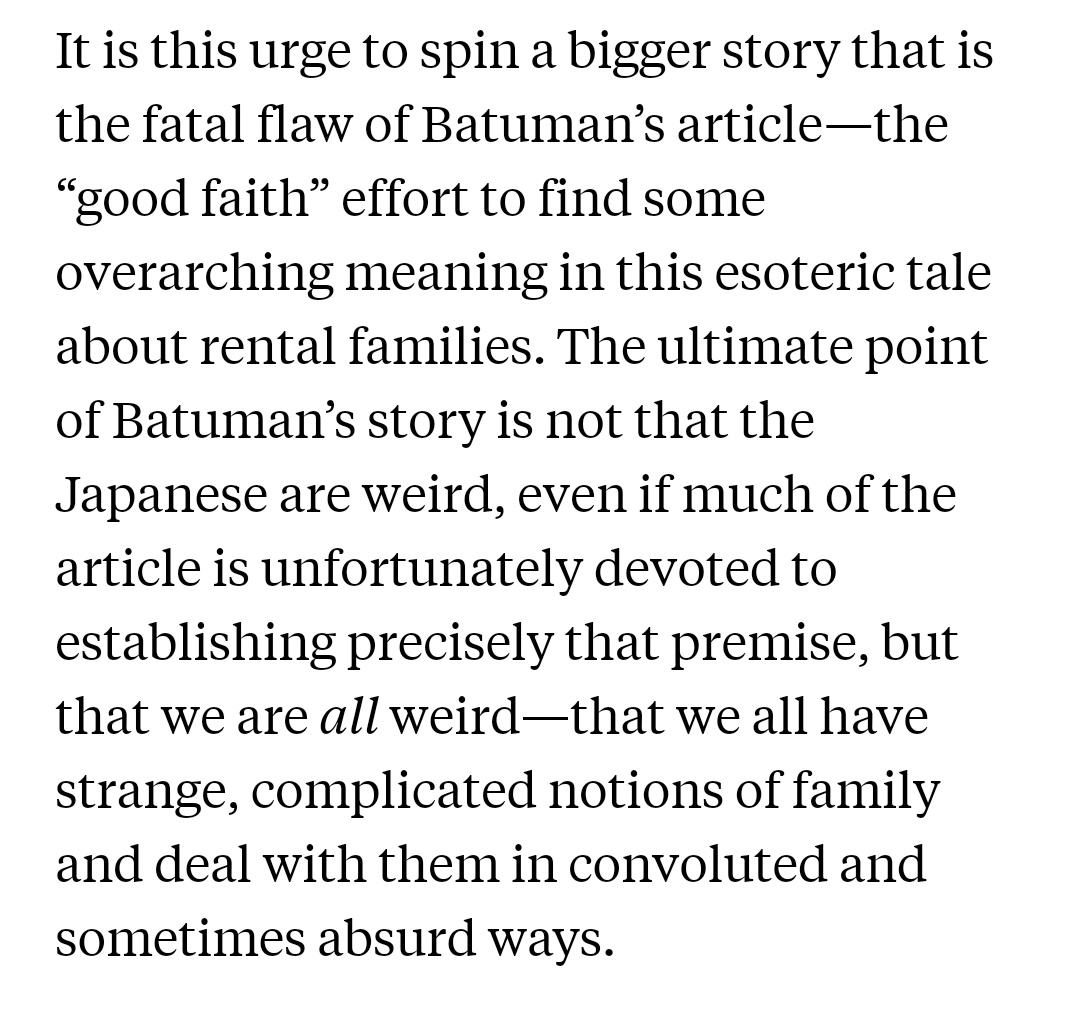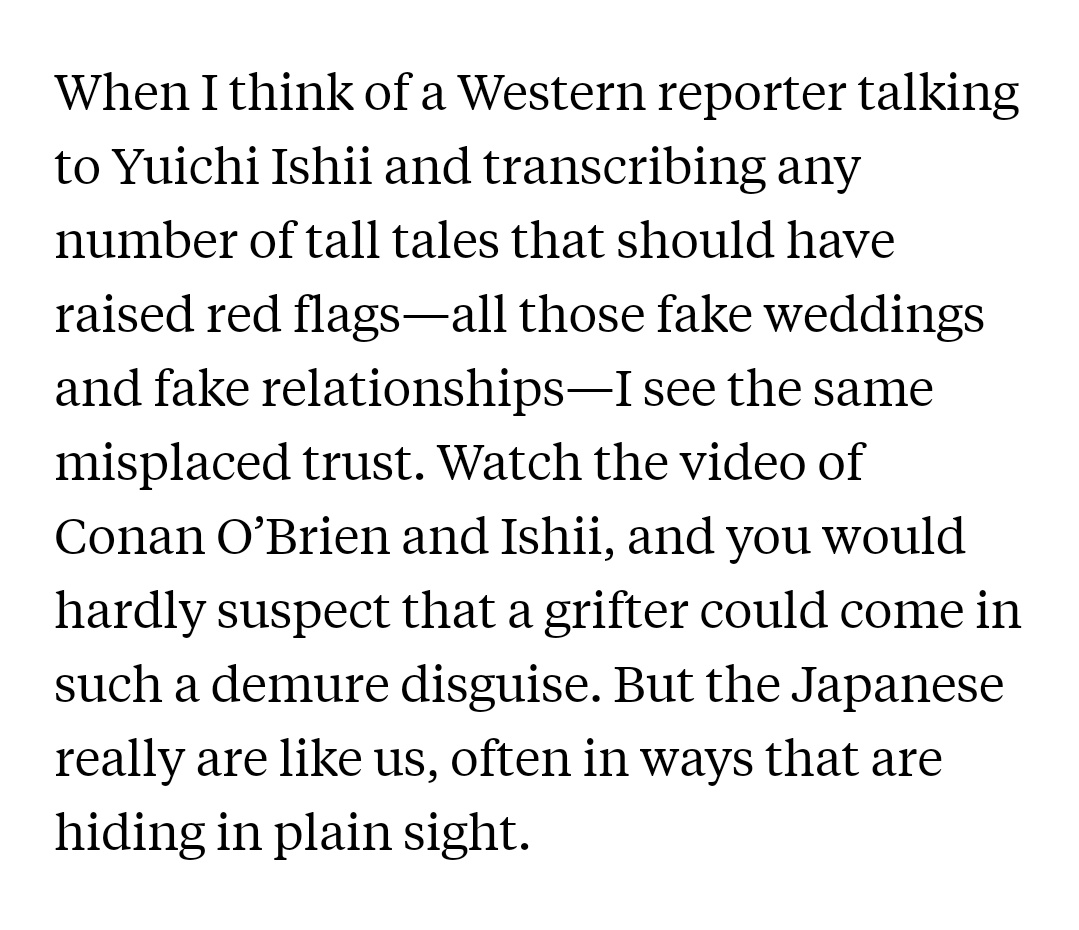"In the Western imagination, Japan is rife with shut-ins, celibates, suicides, loners, and obsessive geeks."
"These stories both satisfy a base appetite for the odd and serve as a projection of Western anxieties (...)". https://newrepublic.com/article/160595/new-yorker-japan-rent-family-fabricated
"These stories both satisfy a base appetite for the odd and serve as a projection of Western anxieties (...)". https://newrepublic.com/article/160595/new-yorker-japan-rent-family-fabricated
This part stood out to me. A big problem with a lot of writing on Japan is the framing:
The notion that observed issues and phenomenon are simply "Japanese" in nature. Deeper explanations are eschewed and much tends to be ascribed to Japanese culture and Japan's "strangeness".
The notion that observed issues and phenomenon are simply "Japanese" in nature. Deeper explanations are eschewed and much tends to be ascribed to Japanese culture and Japan's "strangeness".
A certain popular Dutch TV show about Japan comes to mind. Despite its claimed goal, it primarily seems to serve to make viewers feel better about themselves and let them revel in the depicted strangeness of Japan, rather than to actually educate them. https://twitter.com/writerofscratch/status/1264547351710109697?s=20
In that series, the presenter made a big deal out of the declining birthrate and framed it mostly as Japanese people just not wanting to have sex/children anymore.
Not a word on the fertility rate of (green), which isn't that different from
(green), which isn't that different from  (blue). https://twitter.com/AnomaV/status/1267023364977127426?s=19
(blue). https://twitter.com/AnomaV/status/1267023364977127426?s=19
Not a word on the fertility rate of
 (green), which isn't that different from
(green), which isn't that different from  (blue). https://twitter.com/AnomaV/status/1267023364977127426?s=19
(blue). https://twitter.com/AnomaV/status/1267023364977127426?s=19
She also problematized the increasing usage of concrete in Japan, decrying that she is saddened that "nowadays you really have to do your best to find nature in Japan".
For reference: forest area as % of land area of and
and  from 1990 to 2016:
from 1990 to 2016:
https://twitter.com/IfangBremer/status/1264831687529312261?s=19
For reference: forest area as % of land area of
 and
and  from 1990 to 2016:
from 1990 to 2016:https://twitter.com/IfangBremer/status/1264831687529312261?s=19
Of course the reasons behind the concrete don't warrant proper analysis.
To the presenter, the answer is clear: Japan is wrongly trying to "control" nature. It's the work of a "corrupt system", and protesting against it "doesn't fit Japanese culture".
https://cultureelpersbureau.nl/2020/04/buigen-beton-en-bruine-suiker-waarom-paulien-cornelisse-niet-uitgekeken-raakt-op-japan/
To the presenter, the answer is clear: Japan is wrongly trying to "control" nature. It's the work of a "corrupt system", and protesting against it "doesn't fit Japanese culture".
https://cultureelpersbureau.nl/2020/04/buigen-beton-en-bruine-suiker-waarom-paulien-cornelisse-niet-uitgekeken-raakt-op-japan/
Precisely by treating the issues as uniquely Japanese, presenting the abnormal as Japan's "normal", and by neglecting reflection on our own societies, audiences end up with distorted views about an "emotionally unstable, weird, sexless, bigoted Japan". https://twitter.com/NananiOta/status/1267199218424385537
Batuman's article in The New Yorker intends to tell a bigger story about the human condition. The point was, as @RyuSpaeth puts it, "we are all weird". This appears to have been a goal of the Dutch presenter too. But ultimately their works only emphasise Japanese "weirdness".
I'm ending this thread on a positive note.
When I reached the end of @RyuSpaeth's piece, I couldn't help but chuckle as its last sentence instantly reminded me of the last paragraph of an interview I read more than a year ago.
https://twitter.com/writerofscratch/status/1137847806671171584?s=19
When I reached the end of @RyuSpaeth's piece, I couldn't help but chuckle as its last sentence instantly reminded me of the last paragraph of an interview I read more than a year ago.
https://twitter.com/writerofscratch/status/1137847806671171584?s=19

 Read on Twitter
Read on Twitter